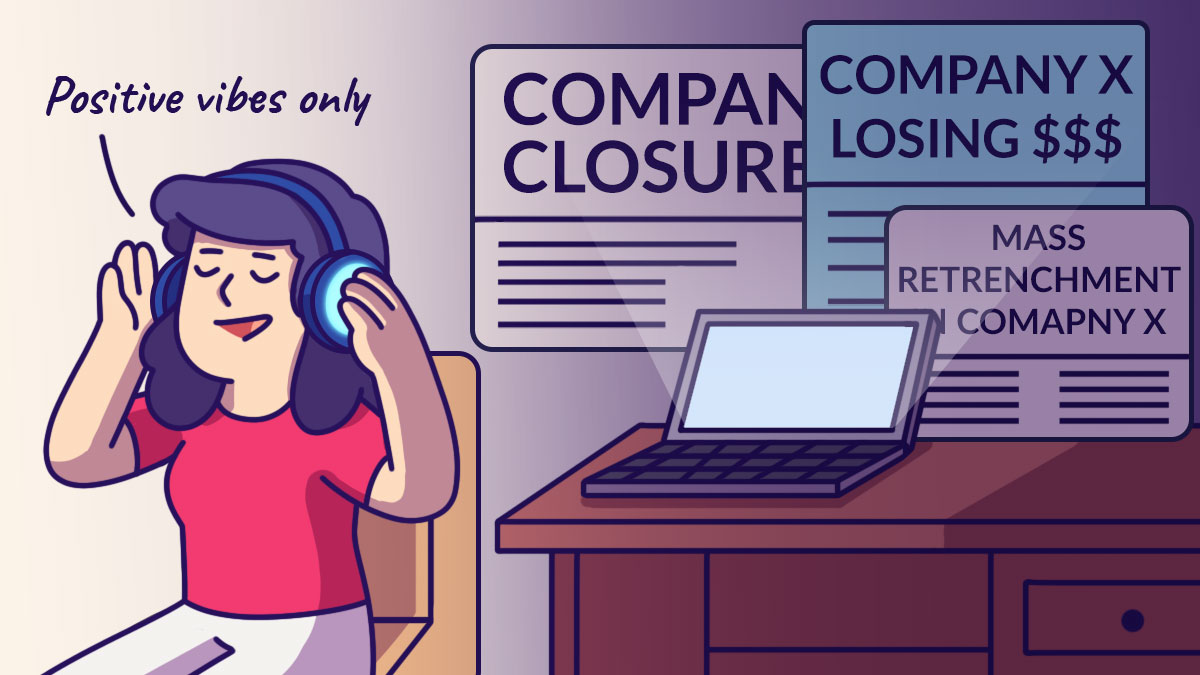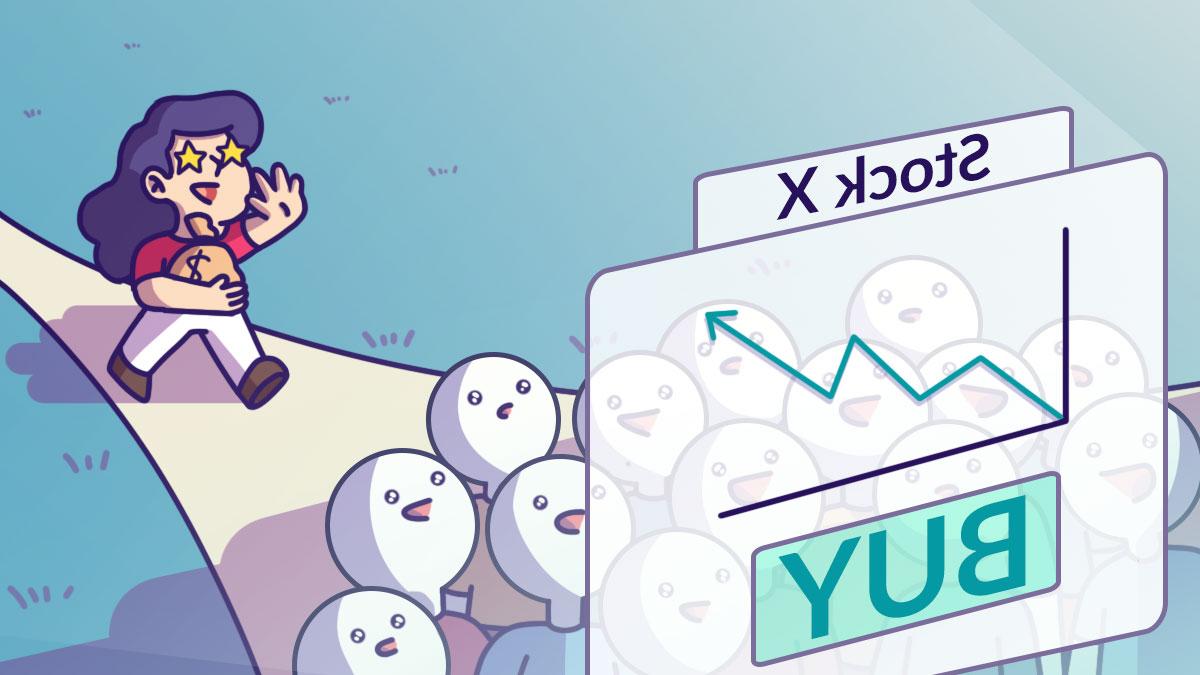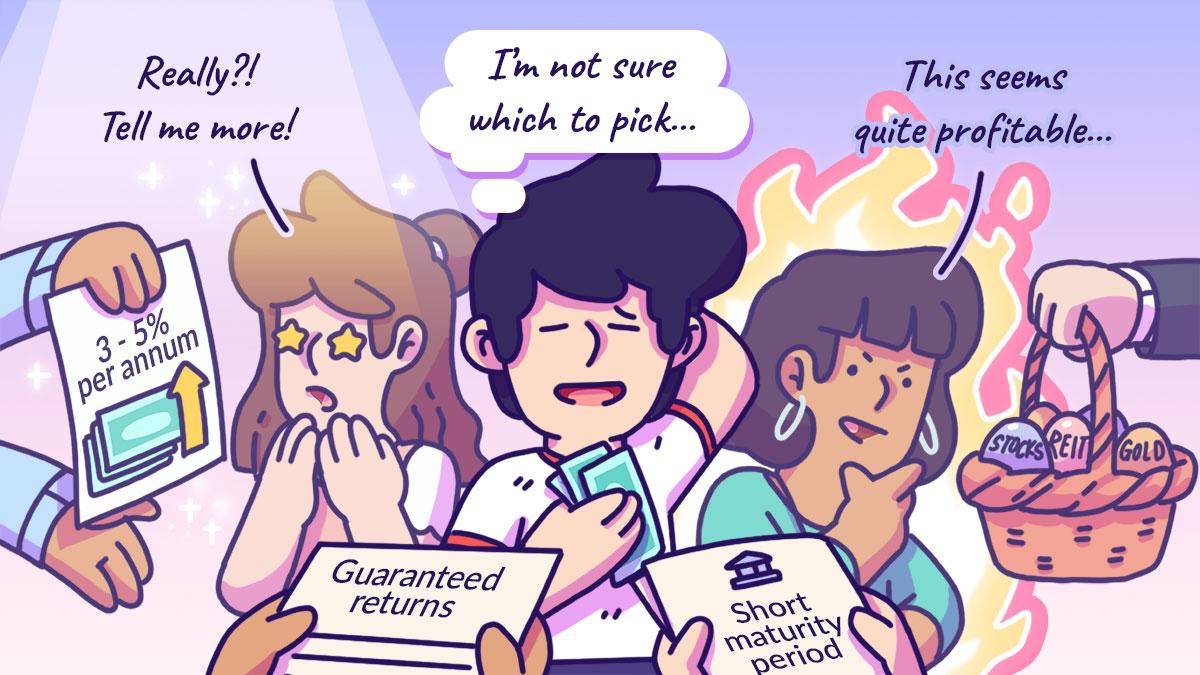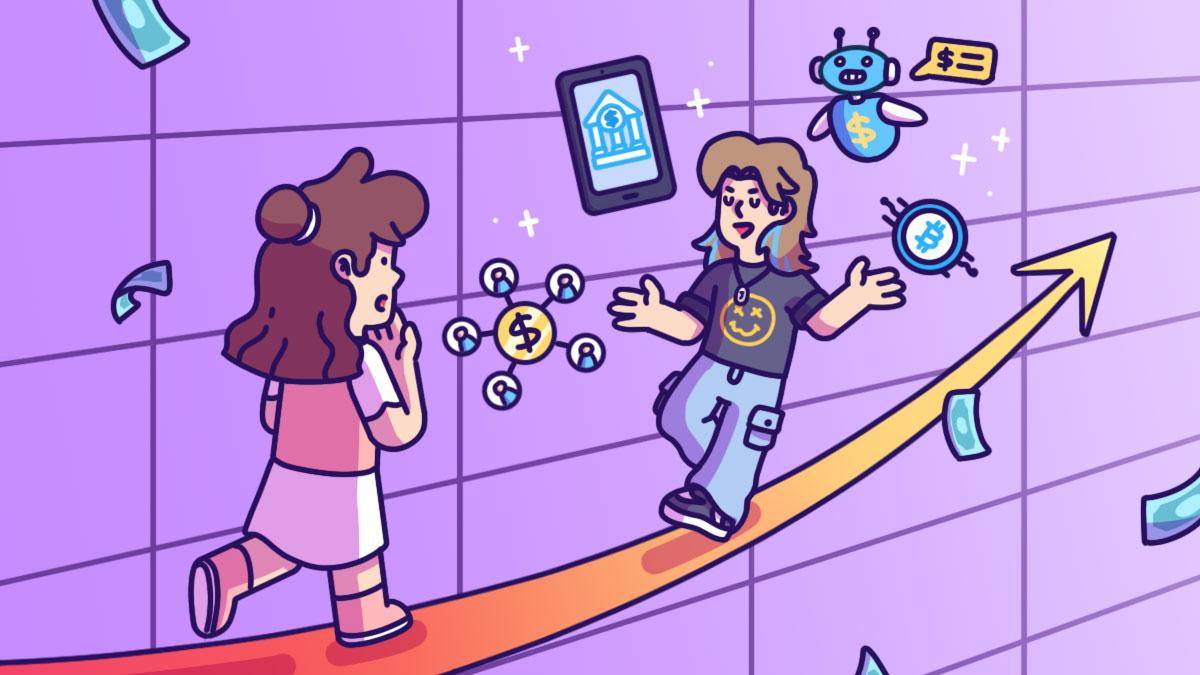Loss-aversion bias
What is it?
Doing whatever you can to avoid losing money, even when it could come at a great cost. Nobody likes losing money. But sometimes, we don’t like losing money so much that we make decisions to avoid it even at the expense of potentially obtaining gains. This is because we feel the pain of a loss more intensely than the joy of earning a proportionally equivalent profit.How it affects my investments
When the stock market takes a sharp fall, you may sell your stocks immediately to prevent further losses without properly evaluating what exactly is causing the market to dip. Or you may end up holding on to a stock that continues to fall in price, hoping that the price will bounce back, even though all the news and research show that it’s not likely to happen. Your brain will rationalise this by telling yourself that selling your stock will lock in your losses, while not selling it means that you avoid making the loss a reality. These decisions are usually made without you looking into why your investment is dropping in value, because your emotions get the better of you. Loss aversion is also the reason some people don’t even start investing. In their minds, if they don’t invest, there is no way that they can lose their money, even though the value of their money is going down, thanks to inflation.How to overcome it
If you know that you’re psychologically wired to feel more pain when you lose, you can minimise making bad decisions based on this pain by having an investing strategy and sticking to it. For example, you can tell yourself that you won’t sell your investments unless it falls below a certain percentage to prevent selling your investments every time the market drops. For those who are extremely loss averse, stick to more diversified investments such as exchange-traded funds (ETFs), which tend to have much lower risk than picking individual stocks, and adopt a long-term investing strategy.Bandwagon or Herd effect
What is it?
Doing something just because everyone else is doing it. Market bubbles such as the Dot-Com bubble in 2000, and the real estate bubble/Global Financial Crisis of 2008, are often driven by droves of investors that just follow what the masses are doing without thinking. Investors with a “herd mentality” believe that if many people believe in something, then it must be correct. In recent years, we have seen this herd mentality leading to the share prices of loss-making companies – such as GameStop and AMC – to rapidly increase in a short space of time.How does it affect my investments?
Financial psychologists say that this money bias “hurts investors the most” because there is so much buzz and excitement around the investment or stock. When investors think a big rally is about to begin, everybody crowds into the hot investment. This mad rush often results in investors buying at the peak and when they panic, they sell stocks at the market’s bottom, optimising their investment loss!How to overcome it
The key to beating this bias is to remember; do not jump just because everyone else is jumping! Stay focused on the end goal of your investment plan and if you don’t have one, get started today. It may be easier said than done as herd behaviour is often driven by the "fear of missing out", or what is better known as “FOMO”. Instead of letting your FOMO get to you, do your own research and make sure the companies you buy into are fundamentally sound investments.











